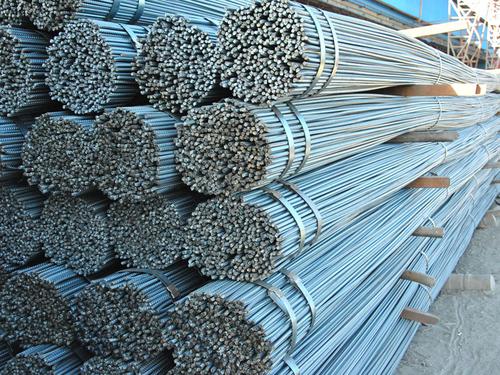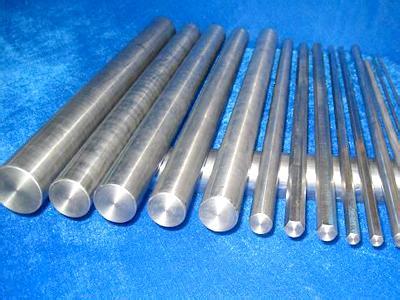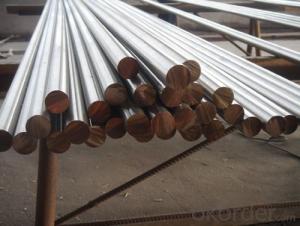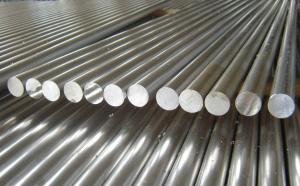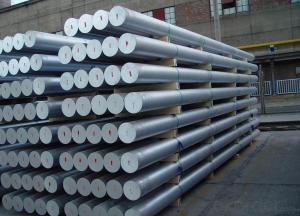Round Bar 5mm-100mm GBQ195 Q235 Hot Rolled High Quality
- Loading Port:
- China Main Port
- Payment Terms:
- TT or LC
- Min Order Qty:
- -
- Supply Capability:
- -
OKorder Service Pledge
OKorder Financial Service
You Might Also Like
Product Description:
OKorder is offering high quality Round Bar 5mm-100mm GBQ195 Q235 Hot Rolled at great prices with worldwide shipping. Our supplier is a world-class manufacturer of steel, with our products utilized the world over. OKorder annually supplies products to European, North American and Asian markets. We provide quotations within 24 hours of receiving an inquiry and guarantee competitive prices.
Product Applications:
Deformed bar is widely used in buildings, bridges, roads and other engineering construction. Big to highways, railways, bridges, culverts, tunnels, public facilities such as flood control, dam, small to housing construction, beam, column, wall and the foundation of the plate, deformed bar is an integral structure material. With the development of world economy and the vigorous development of infrastructure construction, real estate, the demand for deformed bar will be larger and larger
Product Advantages:
OKorder's Round Bar 5mm-100mm GBQ195 Q235 Hot Rolled High Quality are durable, strong, and resist corrosion, exact size, regular package, chemical and mechanical properties are stable.
Main Product Features:
· Premium quality
· Prompt delivery & seaworthy packing (30 days after receiving deposit)
· Corrosion resistance
· Can be recycled and reused
· Mill test certification
· Professional Service
· Competitive pricing
Product Specifications:
Manufacture: Hot rolled
Grade: BS4449
Certificates: ISO, SGS, BV, CIQ
Diameter: 6mm,8mm,10mm,12mm,14mm,16mm,18mm,20mm,
22mm,25mm,28mm,32mm,36mm,40mm,50mm
Length: 6M, 9M,12M or as required
Packaging: Export packing, nude packing, bundled
Chemical Composition: (Please kindly find our chemistry of our material based on HRB500 as below for your information)
Grade | Technical data of the original chemical composition (%) | ||||||
C | Mn | Si | S | P | V | ||
HRB400 | ≤0.25 | ≤1.60 | ≤0.80 | ≤0.045 | ≤0.045 | 0.04-0.12 | |
Physical capability | |||||||
Yield Strength (N/cm²) | Tensile Strength (N/cm²) | Elongation (%) | |||||
≥400 | ≥570 | ≥14 | |||||
Theoretical weight and section area of each diameter as below for your information:
Diameter(mm) | Section area (mm²) | Mass(kg/m) | Weight of 12m bar(kg) |
6 | 28.27 | 0.222 | 2.664 |
8 | 50.27 | 0.395 | 4.74 |
10 | 78.54 | 0.617 | 7.404 |
12 | 113.1 | 0.888 | 10.656 |
14 | 153.9 | 1.21 | 14.52 |
16 | 201.1 | 1.58 | 18.96 |
18 | 254.5 | 2.00 | 24 |
20 | 314.2 | 2.47 | 29.64 |
22 | 380.1 | 2.98 | 35.76 |
25 | 490.9 | 3.85 | 46.2 |
28 | 615.8 | 4.83 | 57.96 |
32 | 804.2 | 6.31 | 75.72 |
36 | 1018 | 7.99 | 98.88 |
40 | 1257 | 9.87 | 118.44 |
50 | 1964 | 15.42 | 185.04 |
FAQ:
Q1: How soon can we receive the product after purchase?
A1: Within three days of placing an order, we will begin production. The specific shipping date is dependent upon international and government factors, but is typically 7 to 10 workdays.
Q2: What makes stainless steel stainless?
A2: Stainless steel must contain at least 10.5 % chromium. It is this element that reacts with the oxygen in the air to form a complex chrome-oxide surface layer that is invisible but strong enough to prevent further oxygen from "staining" (rusting) the surface. Higher levels of chromium and the addition of other alloying elements such as nickel and molybdenum enhance this surface layer and improve the corrosion resistance of the stainless material.
Q3: Can stainless steel rust?
A3: Stainless does not "rust" as you think of regular steel rusting with a red oxide on the surface that flakes off. If you see red rust it is probably due to some iron particles that have contaminated the surface of the stainless steel and it is these iron particles that are rusting. Look at the source of the rusting and see if you can remove it from the surface.
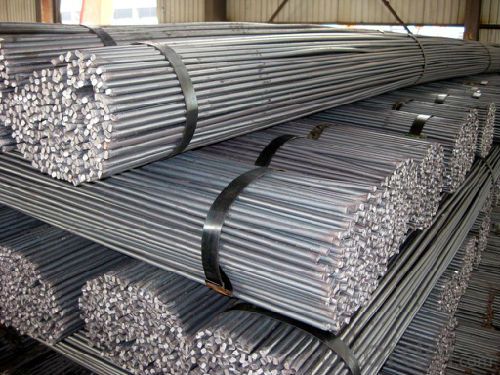
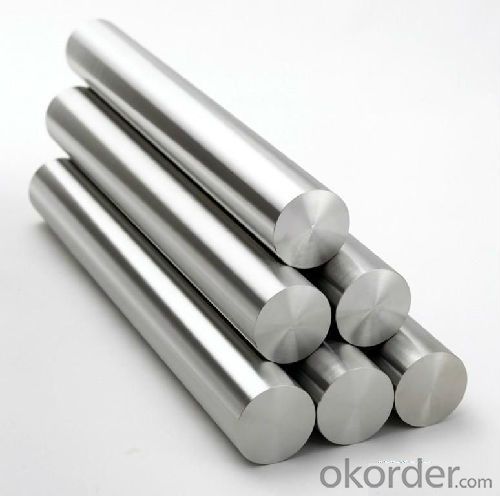
- Q: Can steel round bars be used in the automotive manufacturing industry?
- Yes, steel round bars can be used in the automotive manufacturing industry. Steel is a commonly used material in the automotive industry due to its strength, durability, and versatility. Steel round bars can be used for various applications in automotive manufacturing, such as in the construction of chassis, suspension components, drive shafts, and axles. These round bars provide excellent resistance to impact and fatigue, making them suitable for withstanding the rigorous demands of the automotive industry. Additionally, steel round bars can be easily machined and formed into different shapes, allowing for customization and precise engineering in automotive manufacturing processes. Therefore, steel round bars are a reliable and widely used material in the automotive manufacturing industry.
- Q: Can steel round bars be used in the production of medical equipment?
- Medical equipment can indeed utilize steel round bars. This is because steel is a widely employed material in the production of medical devices and equipment. Its strength, durability, and versatility make it a popular choice. By utilizing steel round bars, one can fashion various components of medical equipment, including surgical instruments, orthopedic implants, diagnostic tools, and hospital furniture. Steel possesses desirable properties, such as resistance to corrosion and the ability to be sterilized, rendering it suitable for use in the medical sector where hygiene and patient safety are paramount. Furthermore, steel round bars can be easily machined and fabricated into different shapes and sizes, allowing for the customization of medical equipment to fulfill specific requirements.
- Q: What are the advantages of using aluminum-silicon alloy steel round bars?
- Aluminum-silicon alloy steel round bars offer numerous benefits: 1. Enhanced lightweight: By combining aluminum with silicon, the round bars become even lighter, making them easier to handle. This is especially advantageous in industries where weight reduction is crucial, like aerospace and automotive. 2. Exceptional strength: The mechanical properties of aluminum-silicon alloy steel round bars, such as high tensile and good yield strength, allow them to withstand heavy loads and provide structural integrity in various applications. 3. Resistance to corrosion: These round bars exhibit excellent resistance to corrosion, making them suitable for environments with moisture or chemicals. Thus, they can be used in applications exposed to harsh conditions or corrosive substances. 4. Efficient thermal conductivity: The round bars' excellent thermal conductivity facilitates efficient heat transfer. This property is particularly beneficial in industries like heat exchangers, where effective thermal management is essential. 5. Easy machinability: Aluminum-silicon alloy steel round bars are relatively easy to machine, allowing for precise shaping and forming. This makes them ideal for applications requiring intricate designs or specific dimensions. 6. Cost-effective solution: Compared to other materials, aluminum-silicon alloy steel round bars offer a cost-effective solution due to their low production and maintenance costs. This makes them popular in construction, automotive, and manufacturing industries. 7. Environmentally friendly: Aluminum-silicon alloy steel round bars are highly recyclable, which is crucial in today's environmentally conscious world. Recycling these alloys requires less energy compared to primary production, making them a sustainable choice. In conclusion, the advantages of aluminum-silicon alloy steel round bars encompass their lightweight nature, high strength, corrosion resistance, thermal conductivity, machinability, cost-effectiveness, and recyclability. These properties make them a versatile material for a wide range of applications across various industries.
- Q: What is the difference between a bright and a hot rolled steel round bar?
- The difference between a bright and a hot rolled steel round bar lies in their manufacturing processes and resulting characteristics. A hot rolled steel round bar is produced by heating the steel billet or ingot to a high temperature and then rolling it through a series of rolling mills to achieve the desired shape. This process results in a rough surface texture with a scale layer on the outside. Hot rolled steel bars are typically used for structural applications where strength and durability are important. They are known for their rough appearance and may require further processing, such as grinding or machining, to achieve a smooth surface finish. On the other hand, a bright steel round bar, also known as a cold drawn or cold finished bar, is produced by drawing the hot rolled steel bar through a series of dies at room temperature. This process helps to improve the dimensional accuracy, surface finish, and mechanical properties of the steel. The resulting bright steel bar has a smooth and shiny surface, free from scale or rough texture. Bright steel bars are commonly used in applications where a superior surface finish and tight dimensional tolerances are required, such as in the manufacturing of precision components or for decorative purposes. In summary, the main difference between a bright and a hot rolled steel round bar lies in their surface finish, dimensional accuracy, and applications. Hot rolled steel bars have a rough surface texture and are suitable for structural applications, while bright steel bars have a smooth and shiny surface finish, making them ideal for precision or decorative applications.
- Q: Can steel round bars be used in the agriculture industry?
- Yes, steel round bars can be used in the agriculture industry. They are commonly used in various applications such as constructing farm equipment, fencing, and building structures. Steel round bars are known for their strength and durability, making them suitable for heavy-duty tasks in the agriculture sector. Additionally, steel round bars can withstand harsh weather conditions and resist corrosion, ensuring their longevity and reliability in agricultural settings. Overall, steel round bars are a versatile and practical choice for the agriculture industry due to their strength, durability, and resistance to environmental factors.
- Q: Can steel round bars be used in the manufacturing of jewelry?
- Yes, steel round bars can be used in the manufacturing of jewelry. While steel is not as commonly used as precious metals like gold or silver in jewelry making, it can still be utilized to create unique and industrial-inspired pieces. Steel round bars offer a sleek and modern aesthetic, making them suitable for contemporary or minimalistic designs. Additionally, steel is known for its durability and strength, ensuring that the jewelry will withstand everyday wear and tear. However, it is important to note that steel may not be suitable for individuals with metal allergies or sensitive skin.
- Q: What is the yield strength to tensile strength ratio of a steel round bar?
- The yield strength to tensile strength ratio of a steel round bar is typically around 0.85.
- Q: What are the different types of steel round bar surface treatments used in the automotive industry?
- In order to enhance the performance, durability, and aesthetics of components in the automotive industry, various surface treatments are utilized for steel round bars. Some commonly employed treatments include: 1. Phosphating: Widely used, this treatment involves the application of a phosphate coating onto the steel round bar. Its purpose is to improve corrosion resistance and establish a suitable foundation for further coatings or paints. 2. Galvanizing: Another method is to apply a layer of zinc onto the surface of the steel round bar. This treatment offers excellent corrosion resistance and extends the lifespan of the component. 3. Electroplating: By utilizing an electric current, a thin layer of metal, such as chrome or nickel, is deposited onto the steel round bar's surface. This treatment enhances appearance, provides corrosion resistance, and improves wear resistance. 4. Powder coating: A popular technique involves the application of a dry powder onto the surface of the steel round bar, followed by heating to form a protective coating. This treatment ensures exceptional durability, corrosion resistance, and can be customized with different colors and finishes. 5. Anodizing: Typically used for aluminum components, anodizing can also be applied to steel round bars in specific cases. This treatment involves the creation of an oxide layer on the surface, resulting in improved corrosion resistance and enhanced appearance. 6. Black oxide coating: A chemical treatment that produces a blackened surface on the steel round bar. This treatment offers corrosion resistance, improved aesthetics, and can serve as a lubricant in certain applications. It is crucial to consider the specific requirements of the automotive component, including environmental conditions, desired appearance, and functional properties when selecting the appropriate surface treatment. Manufacturers meticulously choose the most suitable treatment to ensure optimal performance and longevity of steel round bars in the automotive industry.
- Q: Can steel round bars be used for making bridges?
- Yes, steel round bars can be used for making bridges. Steel is a commonly used material in bridge construction due to its high strength and durability. Round bars, also known as reinforcing bars or rebars, are often used to reinforce concrete structures, including bridge decks and piers. They provide additional tensile strength and help to distribute loads more evenly, making the bridge more resistant to bending or twisting forces. Additionally, round bars can be used as structural elements in the construction of cable-stayed or suspension bridges, where they are used to support and strengthen the main load-bearing cables. Overall, steel round bars are a versatile and reliable choice for bridge construction, offering the necessary strength and stability required to withstand the heavy loads and harsh environmental conditions experienced by bridges.
- Q: What are the different types of steel round bar alloys for improved wear resistance?
- Various steel round bar alloys have been specifically developed to enhance wear resistance. These alloys are designed to possess increased hardness and toughness, making them suitable for situations where constant friction or abrasive forces are present. One popular alloy is tool steel, which includes variations such as H13, D2, and A2. Tool steel is renowned for its high hardness, exceptional wear resistance, and good toughness. It finds common usage in applications such as molding and forming tools, cutting tools, and dies. Stainless steel is another alloy utilized for improved wear resistance. Stainless steel round bars are resistant to corrosion and possess strong properties. They are frequently employed in applications like food processing equipment, medical devices, and marine components. Abrasion-resistant steel, also referred to as AR steel, is a distinct type of alloy used to enhance wear resistance. AR steel is specially formulated to endure impacts and abrasion, making it ideal for applications in mining equipment, construction machinery, and material handling systems. Manganese steel is another alloy that provides exceptional wear resistance. It is commonly utilized in applications involving high impact and abrasive wear, such as crusher jaws, railroad crossings, and excavator buckets. Lastly, there are specialty alloys like chrome-moly steel (chromium-molybdenum) and nickel-chromium alloys, which offer superior wear resistance under specific conditions. These alloys are frequently employed in high-temperature applications, such as aerospace components, power generation equipment, and automotive parts. In conclusion, a variety of steel round bar alloys, including tool steel, stainless steel, abrasion-resistant steel, manganese steel, and specialty alloys, have been developed to enhance wear resistance. Each alloy possesses unique properties and is suitable for specific applications where wear resistance is crucial.
Send your message to us
Round Bar 5mm-100mm GBQ195 Q235 Hot Rolled High Quality
- Loading Port:
- China Main Port
- Payment Terms:
- TT or LC
- Min Order Qty:
- -
- Supply Capability:
- -
OKorder Service Pledge
OKorder Financial Service
Similar products
Hot products
Hot Searches
Related keywords



